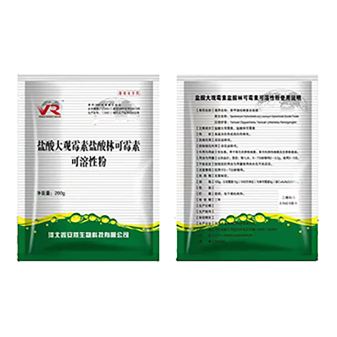- Afrikaans
- Albanian
- Amharic
- Arabic
- Armenian
- Azerbaijani
- Basque
- Belarusian
- Bengali
- Bosnian
- Bulgarian
- Catalan
- Cebuano
- Corsican
- Croatian
- Czech
- Danish
- Dutch
- English
- Esperanto
- Estonian
- Finnish
- French
- Frisian
- Galician
- Georgian
- German
- Greek
- Gujarati
- Haitian Creole
- hausa
- hawaiian
- Hebrew
- Hindi
- Miao
- Hungarian
- Icelandic
- igbo
- Indonesian
- irish
- Italian
- Japanese
- Javanese
- Kannada
- kazakh
- Khmer
- Rwandese
- Korean
- Kurdish
- Kyrgyz
- Lao
- Latin
- Latvian
- Lithuanian
- Luxembourgish
- Macedonian
- Malgashi
- Malay
- Malayalam
- Maltese
- Maori
- Marathi
- Mongolian
- Myanmar
- Nepali
- Norwegian
- Norwegian
- Occitan
- Pashto
- Persian
- Polish
- Portuguese
- Punjabi
- Romanian
- Russian
- Samoan
- Scottish Gaelic
- Serbian
- Sesotho
- Shona
- Sindhi
- Sinhala
- Slovak
- Slovenian
- Somali
- Spanish
- Sundanese
- Swahili
- Swedish
- Tagalog
- Tajik
- Tamil
- Tatar
- Telugu
- Thai
- Turkish
- Turkmen
- Ukrainian
- Urdu
- Uighur
- Uzbek
- Vietnamese
- Welsh
- Bantu
- Yiddish
- Yoruba
- Zulu
8 月 . 21, 2024 10:42 Back to list
Ivermectin Injection Use and Benefits for Sheep Health Management
Ivermectin Injection for Sheep A Comprehensive Overview
Ivermectin is a widely used antiparasitic agent that has proven to be effective in controlling various parasites not only in humans and pets but also in livestock, particularly sheep. This article explores the importance, usage, and benefits of ivermectin injection for sheep farming.
Understanding Ivermectin
Ivermectin belongs to the class of drugs known as avermectins, which are derived from the bacterium *Streptomyces avermitilis*. This medication is known for its potent activity against a broad spectrum of internal and external parasites, including nematodes, ectoparasites like mites and lice, and certain species of ticks. In sheep, it is particularly valued for its ability to manage infestations of gastrointestinal worms and other parasitic infections that can significantly affect health and productivity.
Benefits of Ivermectin Injection
The primary benefit of using ivermectin injection in sheep is its rapid action and effectiveness against a wide range of parasites. The injectable form allows for swift absorption into the bloodstream, leading to faster therapeutic effects compared to oral formulations. This is especially crucial in acute infestations where prompt treatment is necessary to prevent serious health issues or even death.
Another advantage of ivermectin injection is its long-lasting protection. Depending on the specific formulation, a single injection can offer protection that lasts from several days to several weeks. This not only reduces the frequency of treatments required but also minimizes the stress on both the animals and the handlers, making it a practical choice for sheep producers.
ivermectin injection for sheep

Application Guidelines
Using ivermectin effectively requires following certain guidelines to ensure its efficacy and animal safety. The dosage generally recommended is based on the weight of the sheep; typically, 0.2 mg/kg body weight is administered. It is essential to weigh the animals accurately to avoid underdosing or overdosing, both of which can lead to treatment failure or adverse effects.
Precautions should also be taken regarding the timing of administration. Ivermectin should be used in a targeted manner, particularly in sheep prior to lambing or during lambing season when the animals are more susceptible to parasitic infections. It is also advisable to conduct fecal egg count monitoring to determine the effectiveness of deworming protocols and when to retreat.
Resistance Concerns
One of the critical challenges associated with the use of ivermectin and other antiparasitic drugs is the development of resistance among parasites. As a result, it is crucial for sheep farmers to adopt integrated parasite management strategies. These strategies might include rotating dewormers with different active ingredients, implementing pasture management techniques, and maintaining good overall sheep husbandry practices to minimize the risk of resistance development.
Conclusion
In summary, ivermectin injection represents a cornerstone in the management of parasitic infestations in sheep. Its effectiveness, ease of application, and long-lasting action make it a valuable tool for sheep farmers aiming to maintain herd health and productivity. However, it is vital to use this powerful drug judiciously to preserve its efficacy and combat the growing concern of parasitic resistance. By adopting a holistic approach to parasite control, sheep producers can ensure the health of their flocks and promote sustainable farming practices.
-
The Power of Radix Isatidis Extract for Your Health and Wellness
NewsOct.29,2024
-
Neomycin Sulfate Soluble Powder: A Versatile Solution for Pet Health
NewsOct.29,2024
-
Lincomycin Hydrochloride Soluble Powder – The Essential Solution
NewsOct.29,2024
-
Garamycin Gentamicin Sulfate for Effective Infection Control
NewsOct.29,2024
-
Doxycycline Hyclate Soluble Powder: Your Antibiotic Needs
NewsOct.29,2024
-
Tilmicosin Premix: The Ultimate Solution for Poultry Health
NewsOct.29,2024













